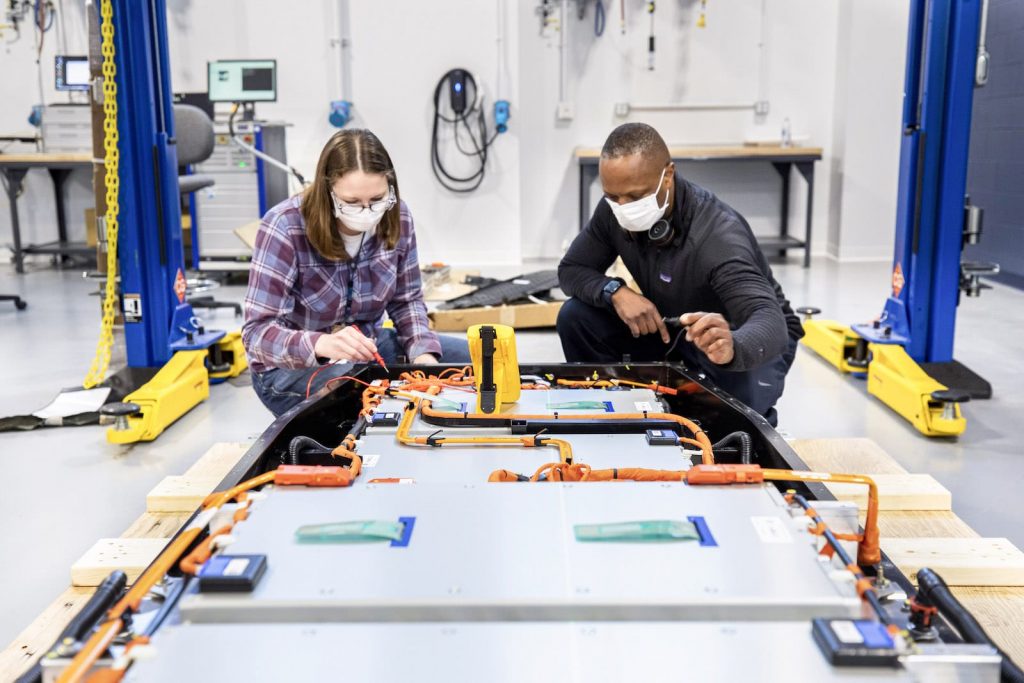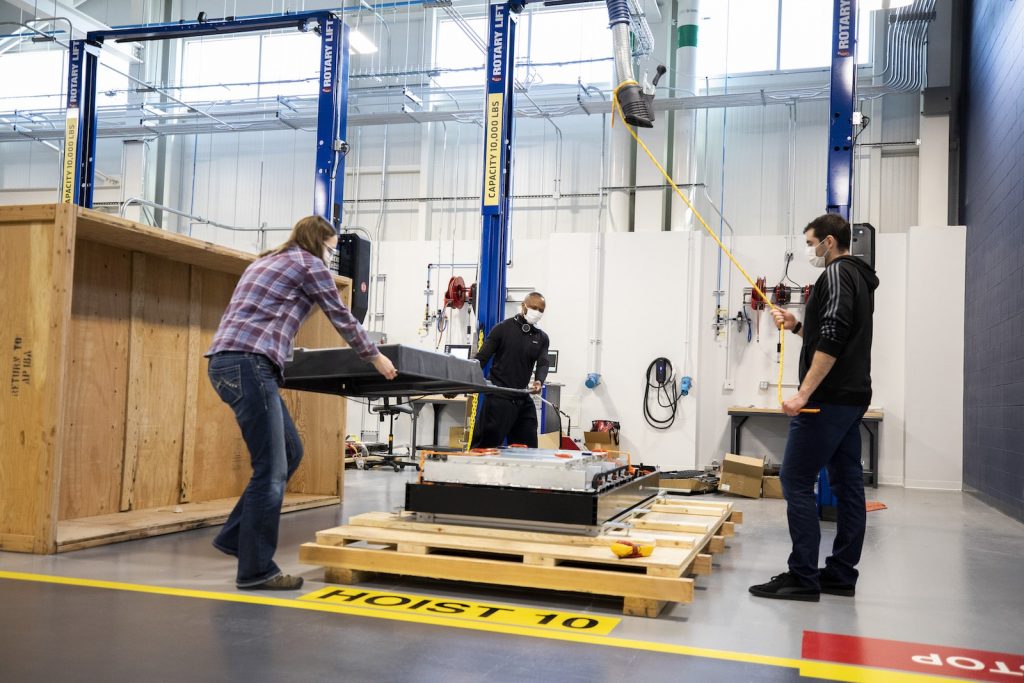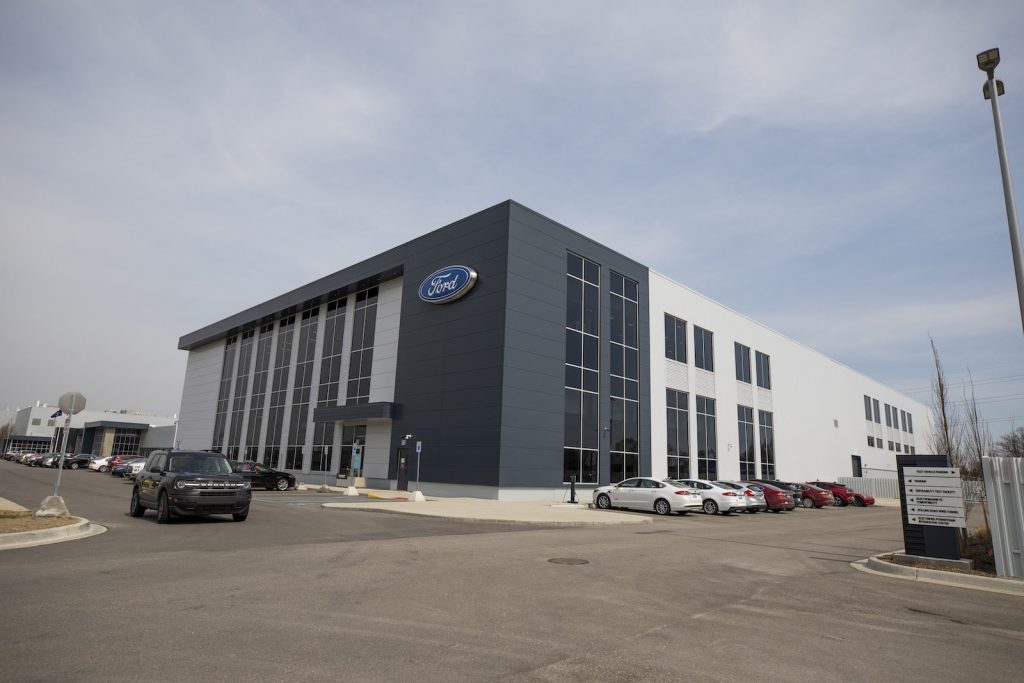Now past the “what kind of EVs will we make,” Ford is now focused on “how will we get the batteries we need and make them better” portion of its electrification program. That stage now has a home: Ford Ion Park.

The company will invest $185 million in its new global battery center of excellence, which will be home to as many as 200 employees focused on the development and production of lithium-ion as well as solid-state batteries, the company confirmed July 27.
“Ford already is delivering on our plan to lead the electric revolution with strong new vehicles including Mustang Mach-E, 2022 E-Transit available late 2021 and the 2022 F-150 Lightning available from spring next year,” said Anand Sankaran, Ford Ion Park director.
“The new lab will help Ford speed up the battery development process to deliver even more capable, affordable batteries and is part of Ford’s renewed commitment to making Michigan a centerpiece of its focus on EVs.”
Automaker’s need for newer, better — and more — batteries
The announcement is truly a confirmation rather than a surprise as the Dearborn, Michigan-based automaker revealed the plan in late April for what it then called Ion Labs. The goal at the time was to accelerate development of next-generation batteries.

Hau Thai-Tang, the automaker’s chief product platform and operations officer, noted Ford in April accelerated its “ambitions” in the battery-electric vehicle market compared to just 18 months ago, and the new lab was the first step in that move.
The first public sign of the ramp up was on the product side of the equation with the Mustang Mach-E in full production late last fall, then followed by the start of the changeover at its Transit line in Kansas City and in Europe to begin building E-Transit models, and finally the introduction of the F-150 Lightning in May.
However, perhaps just as important was the company securing a partnership with South Korean battery maker SK Innovation. The joint venture, BlueOvalSK, is set to manufacture battery cells and arrays at the Korean supplier’s facility in Georgia.
It mirrors moves by competitors, for example General Motors which partnered with LG Chem, to ensure it has a reliable source for batteries as well as a partner in further development.
The future begins with $185 million

“Ford already is delivering on our plan to lead the electric revolution with strong new vehicles including Mustang Mach-E, 2022 E-Transit available late 2021 and the 2022 F-150 Lightning available from spring next year,” said Anand Sankaran, Ford Ion Park director.
“The new lab will help Ford speed up the battery development process to deliver even more capable, affordable batteries and is part of Ford’s renewed commitment to making Michigan a centerpiece of its focus on EVs.”
A new collaborative learning lab opening next year, Ford Ion Park represents $100 million of Ford’s $185 million investment in developing, testing, and building vehicle battery cells and cell arrays. It is part of the company’s $30 billion investment in electrification by 2025 and a renewed commitment to making Michigan a centerpiece of its focus on EVs.
Ford will refurbish an existing 270,000 sq.-ft. facility to house up to 200 engineers and include world-class pilot-scale equipment for electrode, cell and array design and manufacturing engineering and innovation.
The lab will use state-of-the-art technology to pilot new manufacturing techniques that will allow Ford to research and quickly scale breakthrough battery cell designs with novel materials as part of its plan to vertically integrates battery cells and batteries.







